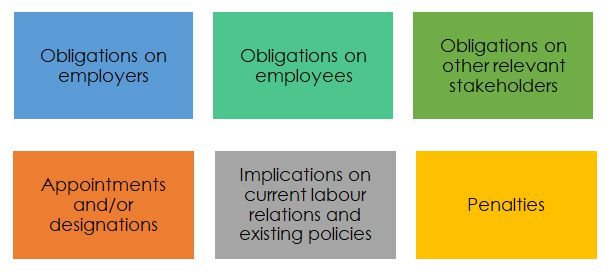
Top stories






More news

















Logistics & Transport
Uganda plans new rail link to Tanzania for mineral export boost









The draft regulations flow from recent amendments effected to Coida which introduce, among other changes, the concept of rehabilitation and reintegration as essential parts of return-to-work processes for employees who have suffered work-related injuries or occupational diseases. A summary of those changes signed into law by the President but awaiting a commencement date can be found here.
The amendments to Coida include the need to incorporate clinical, vocational, and social rehabilitation measures to facilitate employees' physical, psychological, and social recovery. These changes seek to ensure that individuals can regain their independence, re-enter the workforce and actively participate in all aspects of life. With this laudable goal comes immense practical and financial considerations and challenges, primary among these, is the question of whether employers are required to reserve employees' work for the duration of the rehabilitation period.
The draft regulations will require the adoption of new systems, policies, and measures by all employers regarding employees who have suffered occupational diseases or sustained injuries in the workplace. These include considerations of existing dismissal procedures and incapacity-related policies already implemented by employers, as well as proposed measures to ensure the reintegration of employees into the workplace as far as reasonably possible.
In considering the draft regulations, the following key aspects and features will, in our view, affect all employers:

The draft regulations provide for increased participation of the Compensation Fund (CF) or Licensee in respect of enforcing the proposed provisions in the employers' workplace as well as collaboration and involvement of various stakeholders including the requisite inspectorate, unions, and healthcare facilities. An interesting feature in the draft regulations is the proposed additional obligations of healthcare and occupational medical practitioners who play an integral role in assisting the employer to implement already existing occupational health and medical programmes in the workplace.
The proposed penalties for non-compliance with the draft regulations have not been set and simply prescribe that the fine or penalty will be determined by the Compensation Commissioner.
Employers may appoint an employee health and wellness representative for their "business establishment". The person appointed in the role must report all work-related injuries and occupational diseases to the CF or Licensee and must receive reports of injuries or diseases from employees. Although the wording in the regulations in some instances infers that the appointment is discretionary, other instances imply that these persons must be identified by the employer and discharge prescribed functions.
It is proposed that the appointee will act as a liaison officer between the CF or Licensee, the affected employee, and the rehabilitation service providers. The appointee must have the necessary skill, knowledge, and competence to perform their duties and it is proposed that the appointee must educate the employees and the rehabilitation service providers on their legal rights and obligations. The appointee also has a number of rights, primarily relating to access to information and plays a role in ensuring cost-effective programmes.
The draft regulations will require employers to provide access to facilities, services and benefits aimed at rehabilitating employees to enable their return-to-work or to the labour market more generally. This includes the implementation of a reintegration and return-to-work policy which must be freely accessible and communicated to all employees.
The draft regulations incorporate various obligations regarding employers' general duties to provide and maintain, as far as reasonably practicable, a working environment that is safe and without risk to the health and safety of their employees and associated general duties are incorporated into the draft regulations.
Other obligations proposed relate to guiding and assisting injured or diseased employees with their general, day-to-day reintegration into the workplace.
The draft regulations also envisage that the employer must identify and designate employee health and wellness representatives who will act as liaison officers between the CF or Licensee, the injured or diseased employee and the medical rehabilitation service providers.
In Part 2 of this article, we will look at the obligations on employees and other stakeholders.